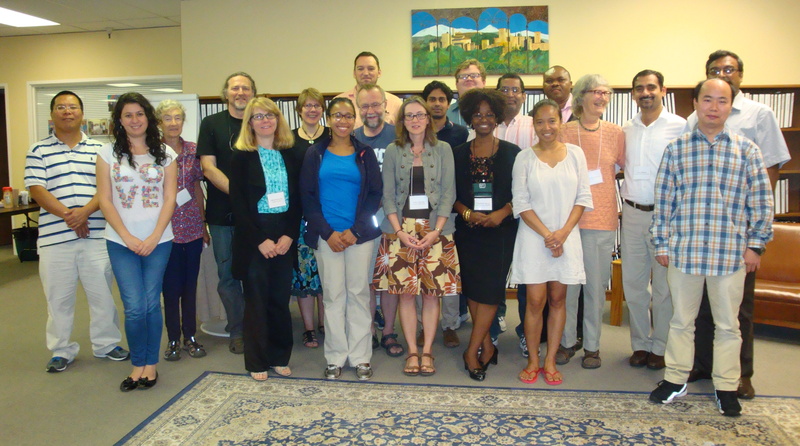Neglected infectious diseases
August 11 to August 15, 2014
at the
American Institute of Mathematics,
San Jose, California
organized by
Jan Medlock and Anuj Mubayi
Original Announcement
This workshop will be devoted to mathematical
modeling of vector-borne diseases that are a cause of several million deaths and
innumerable cases of sickness every year. These infectious illnesses are
emerging or resurging as a result of several factors, such as changes in
climate, in public health policy, in demography (as a results of high migration
of hosts and vectors), spread of resistance to insecticide and drug, and genetic
changes in pathogens. Many of the vector-borne diseases (e.g., Chagas, dengue,
leishamaniasis) are termed as neglected tropical diseases by the World Health
Organization because they
are endemic in poor regions in spite of the presence of preventive measures and
treatments common in developed regions around the world. Neglected tropical
disease restricts the ability of a person to work and generate income, or to
care for their families and hence, need immediate attention from the modeling
community. Moreover, tropical diseases has also become of vital interest in
additional geographical areas as a result of progression in global warming. In
the workshop, we plan to discuss current issues and risk factors of diseases
like Chagas, dengue, and leishmaniaisis, as well as focus on efficient
incorporation of relevant factors in the model and linking them to available
data. The focus of the workshop will be modeling complexity of some neglected
vector-borne infectious diseases. The main goals of the workshop are:
- identifying risk-factors crucial in modeling neglected tropical diseases in underdeveloped countries,
- evaluating model-appropriateness of such diseases to different regional
conditions,
- quantifying uncertainty in the models as a result of incomplete information from
poor countries with limited resources, i.e., assessing various data sets needed
to analyze and validate models of vector-borne neglected tropical diseases for
which available data, in general, is highly underreported.
- reviewing areas in which models have been and can be most useful, including
treatment, climatic conditions, interaction of parasite and vector species,
ecological aspects, and cost optimization.
Carefully established mathematical models will be suitable tool to truly capture
the complex dynamics of the disease within a given natural or man-made
environments of such diseases.
Material from the workshop
A list of participants.
The workshop schedule.
A report on the workshop activities.

